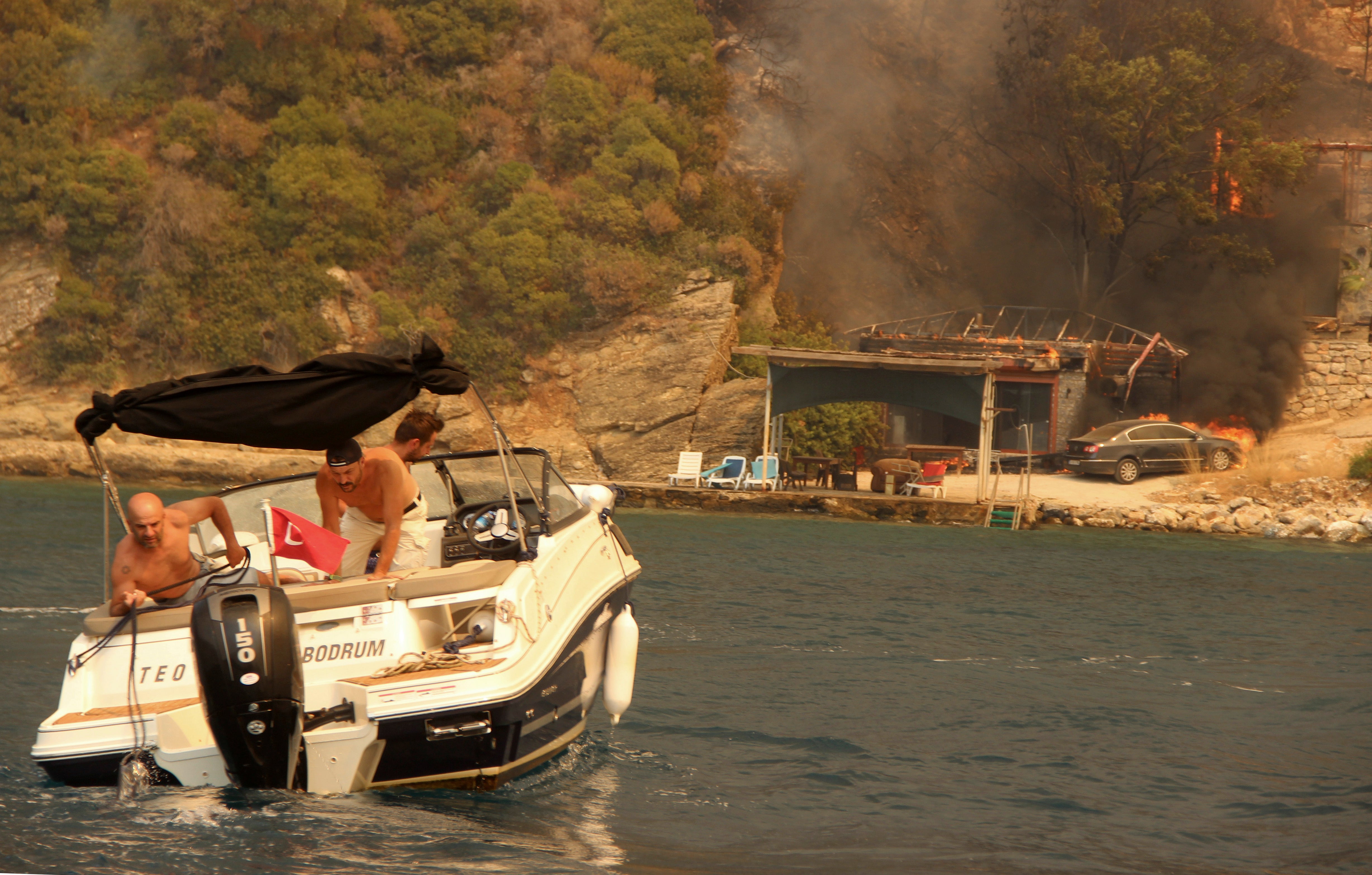Paradise lost: How the Turkish wildfires destroyed one of the most beautiful places I have ever seen
Beril Eski has been visiting villages on Turkey’s Bodrum coast for years. Last week, the coastline was ravaged by wildfires
Your support helps us to tell the story
From reproductive rights to climate change to Big Tech, The Independent is on the ground when the story is developing. Whether it's investigating the financials of Elon Musk's pro-Trump PAC or producing our latest documentary, 'The A Word', which shines a light on the American women fighting for reproductive rights, we know how important it is to parse out the facts from the messaging.
At such a critical moment in US history, we need reporters on the ground. Your donation allows us to keep sending journalists to speak to both sides of the story.
The Independent is trusted by Americans across the entire political spectrum. And unlike many other quality news outlets, we choose not to lock Americans out of our reporting and analysis with paywalls. We believe quality journalism should be available to everyone, paid for by those who can afford it.
Your support makes all the difference.Spending every summer in Bodrum since I was a child, Mazi village was my favourite swimming spot.
It was 30km away from our summer house but even the road there was part of the experience. It curved between thick pine forests, an emerald green tunnel, leading to the steep mountains floating in the sunshine. There were green valleys covered with forests. Once you reached the beach, covered with white stones, you’d see the pearly turquoise sea, nestled in the arms of valleys.
In other districts of Bodrum, you can find all sorts of luxury; five-star hotels, expensive restaurants, live music and fancy yachts. But Mazi village offered a rustic experience for visitors, a few modest hostels and restaurants, and humble villagers welcoming tourists.
But when wildfires broke out in more than 200 places across 47 towns, claiming the lives of at least eight people, Mazi also experienced its fair share of the damage: thousands of hectares of forests burnt to the ground. The villagers were lucky to save their houses, let alone the lush valleys and mountains turned ash-grey.
I went back to Mazi to see what was left of the ravaging fires.
Even 100km away from the area, the weather was thick with dust and fog. The forest tunnel towards the Mazi village was still shimmering green, protected by the counter-winds from burning. The sun was absent for a while, and then it reappeared as a ball of dark orange.
As I kept going, I started to see the ashy patches of burnt trees among the undergrowth and bushes which intensified towards the village. At one point, it was all charcoal, apart from a few trees that survived the blazes.

There were some trees by the road, cut by the firefighters to barricade the inferno. The fog in the air got heavier as I got closer to the village. Although the fire was over, I could still smell the smoke burning my nose. The wind was sweeping the dust, making it difficult to open my eyes.
There were fire brigade trucks provided by the Bodrum mayor and other municipalities, deployed on the road to prevent future fires. Clouds of dust were resting on mountain tops. Burnt trees, only left with black trunks and branches were still standing as the witnesses of the disaster. Once a peaceful, beautiful village, Mazi was now gloomy.
Villagers were gathered at the local tea shop, trying to recover from the disaster. Forestry, olive cultivation, and tourism – the main sources of income – were deeply affected by the fires, leaving many villagers stuck in a difficult position.
Residents were feeling abandoned, lonely, and helpless: disappointed with the lack of coordination and incompetence of the government. No planes or helicopters carried water to the fires, and the efforts on the ground were unfortunately insufficient.
While most of the population evacuated the area during the wildfires, some stayed and fought to save their houses and hostels.
Every conversation I had with the locals got political or led toward conspiracy theories. They were not satisfied with the statements of authorities and were still looking for answers. Now that most of the place has burnt down, the people are worried that luxury hotels and restaurants would be built atop the scorched land.
The white beach stones were covered in ashes and the surrounding green transformed into grim shades of brown and grey. The sea was no longer clear blue.
One of the most beautiful places I have ever seen ceased to exist. It was buried in memories.
I looked sadly at the hazy horizon, which barely revealed the neighbouring Greek islands. A villager approached me and whispered: “We used to say the disaster hits and leaves, and what is left behind is suffering. Now, we say, the disaster hit and left, and what is left behind is death.”

Join our commenting forum
Join thought-provoking conversations, follow other Independent readers and see their replies
Comments